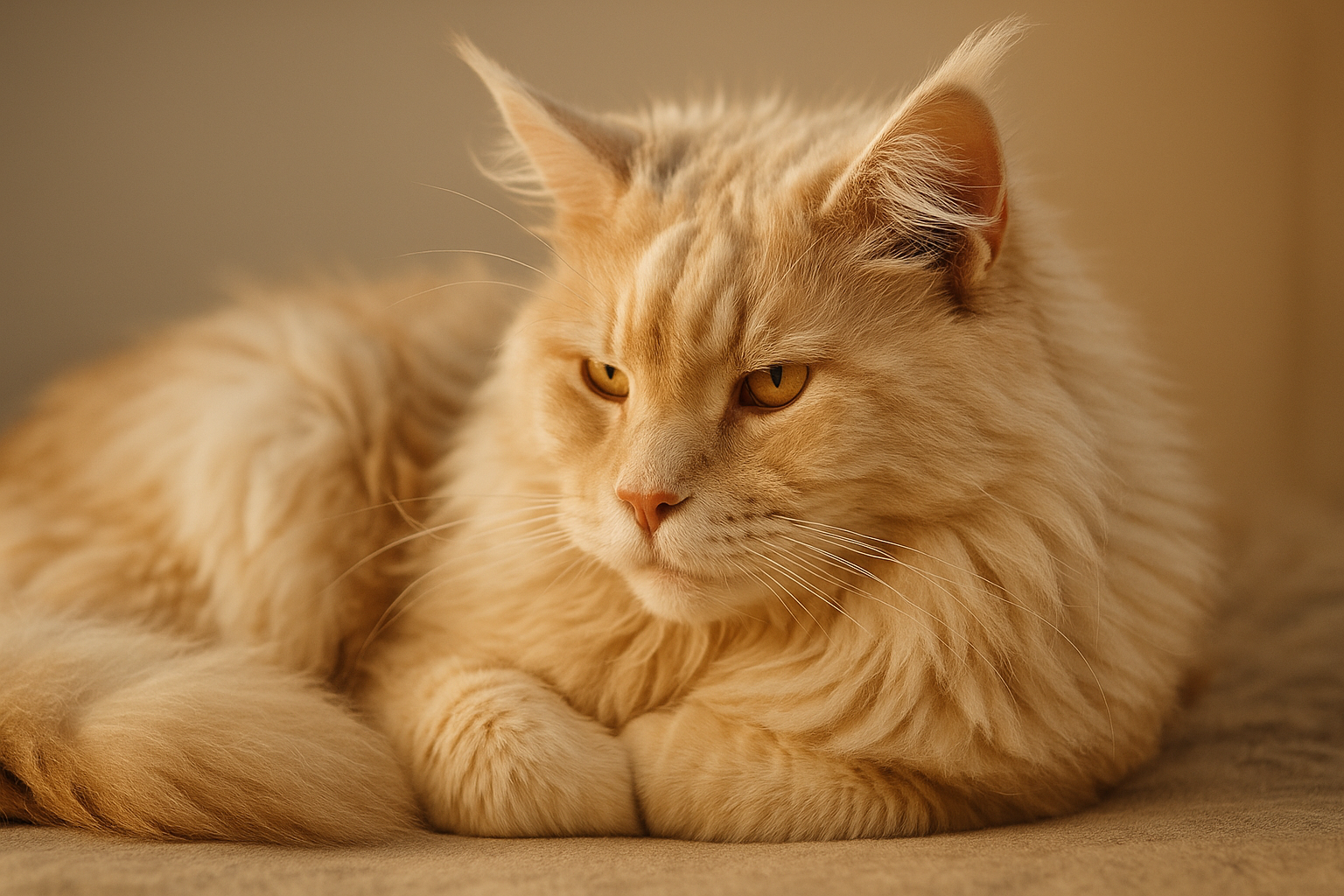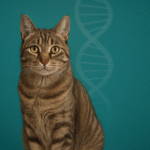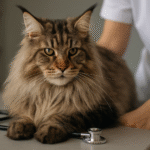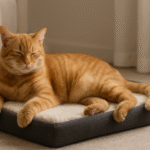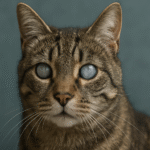Have you ever noticed a kitten that walks a bit differently—maybe a little wobbly, or sits with their legs splayed? It might seem cute or quirky at first, but in some Maine Coons, it can be a sign of something more serious: spinal muscular atrophy (SMA).
We met a Maine Coon kitten named Jasper through a local rescue. He had the fluffiest coat and the biggest paws—but his back legs just didn’t quite cooperate the way they should. That’s when we learned about SMA, and it changed how we looked at early mobility issues in cats.
Let’s walk through what this condition means for Maine Coons, how to spot it early, and how you can give affected cats a full, happy life.
What Is Spinal Muscular Atrophy in Cats?
Spinal muscular atrophy (SMA) is a hereditary neuromuscular disorder that affects the spinal cord and the muscles in a cat’s body—especially the hind limbs. It causes the motor neurons in the spinal cord to degenerate, leading to muscle wasting (atrophy), weakness, and abnormal movement.
It sounds scary, but here’s the good news: SMA isn’t painful, and many cats with the condition go on to live fairly normal lives with just a few adjustments.
Is SMA Common in Maine Coons?
SMA is a genetic condition most commonly found in Maine Coons. It’s inherited in an autosomal recessive pattern, meaning a kitten must inherit the faulty gene from both parents to be affected.
The gene responsible for SMA in Maine Coons is well-documented, and breeders often screen for it. If you’re purchasing a Maine Coon kitten from a reputable breeder, you can (and should) ask for genetic testing information.
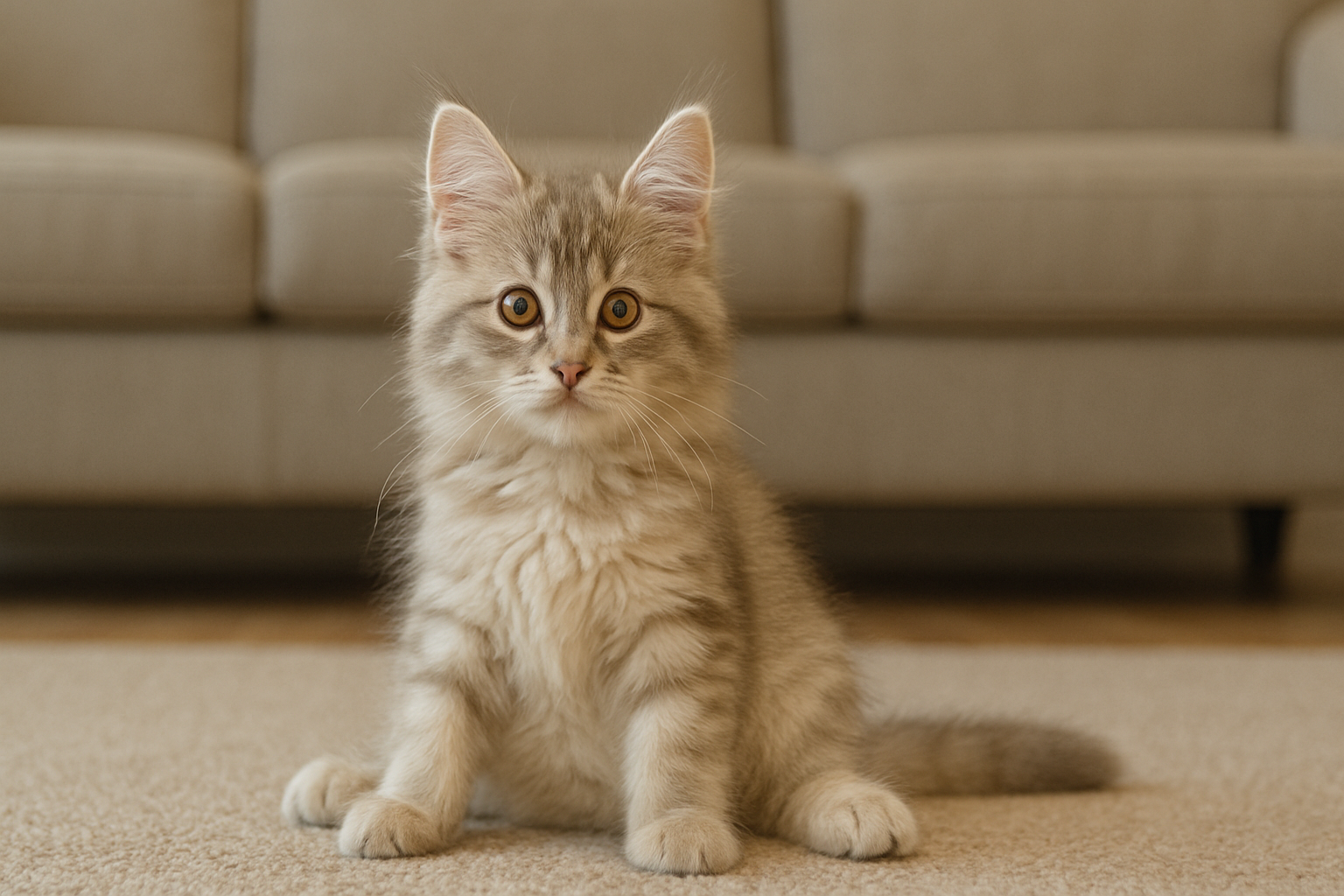
Symptoms to Watch For
Signs usually appear between 3 and 4 months of age, when kittens begin to walk and play more actively. Symptoms may vary in severity but often include:
- Unsteady gait or “wobbly” walking
- Splayed hind legs when sitting or lying down
- Muscle wasting in the hips and thighs
- Clumsiness or trouble jumping
- Weakness that doesn’t seem to bother the kitten
Cats with SMA typically don’t seem to be in pain, and their personalities remain bright and playful. That’s part of what makes early detection tricky—it’s easy to think your kitten is just clumsy or growing into their legs.
Diagnosis and Treatment
If you or your vet suspect SMA, a DNA test can confirm the diagnosis. These are usually done through a blood or cheek swab sample and can identify whether your cat is affected, a carrier, or clear.
There’s no cure for spinal muscular atrophy in cats, and there are no medications that reverse the nerve degeneration. However, supportive care makes a huge difference.
- Soft bedding and non-slip floors help prevent injury.
- Steps or ramps can help cats access furniture without jumping.
- Keep their weight in check, as obesity worsens mobility.
- Regular vet checkups help monitor any changes.
SMA is not progressive like some other neurological conditions. Once symptoms stabilize, many cats adapt extremely well.
Living with a Cat with SMA
Living with a cat who has spinal muscular atrophy isn’t all that different from living with any other feline—except you may find yourself cheering them on a little more often.
Jasper learned to scoot and hop up onto cushions with a sort of charming determination. He never let his condition slow him down emotionally—he was just as curious, playful, and food-obsessed as any kitten we’ve met. We simply learned to cat-proof our space a little differently to help him thrive.
Many SMA cats live into their teens and become some of the most beloved members of the family. You can learn more about the breed’s temperament and care needs in our complete Maine Coon cat guide.
Final Thoughts
Spinal muscular atrophy might sound serious—and in some ways, it is. But with knowledge, good care, and a bit of creativity, cats with SMA can live long, happy, and playful lives. Especially Maine Coons, with their big hearts and bigger personalities.
If you suspect SMA or plan to adopt a Maine Coon, early awareness and genetic testing can make a world of difference. And if you already share your home with a wobbly sweetheart? You’re in for a wonderfully rewarding journey.

